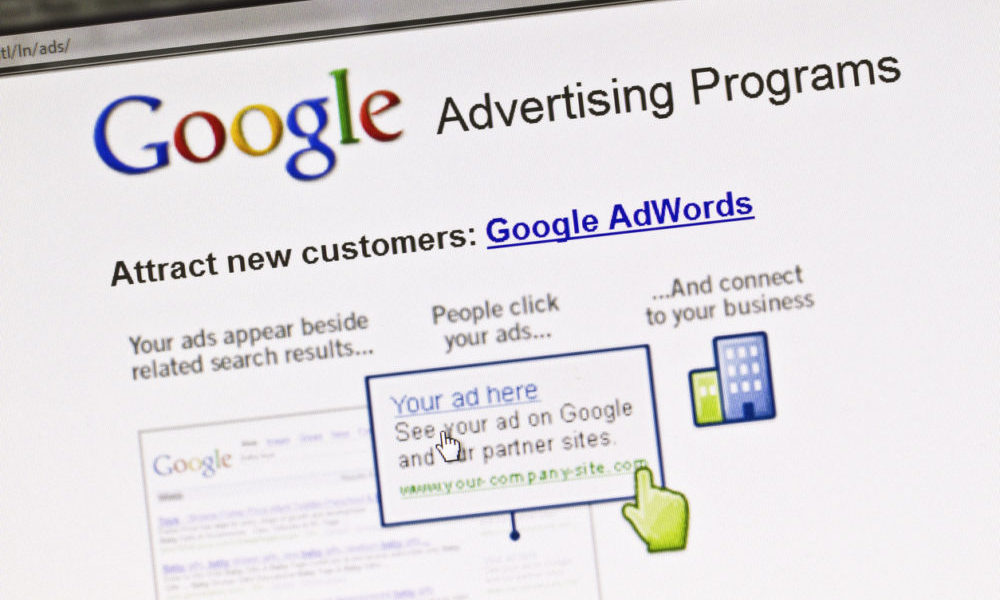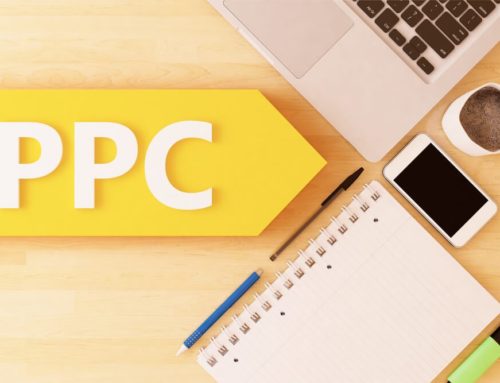The key to how Google AdWords works is the Quality Score. Quality Score is generally how well an ad group, keywords, ad, and landing page relate to what a person is searching for, and how likely someone is to click on the ad. Here is Google’s page for “Check and understand Quality Score.”
Now every time someone does a search on Google, an AdWords auction is created. Every advertiser who has a keyword match to the search query competes in the auction. How well each advertiser competes is based on their Ad Rank. Again, using a slightly simplified version:
Ad Rank = Quality Score * Bid
Ads are placed in order based on Ad Rank. The highest Ad Rank gets the top spot and so on down to either the last ad qualifying for the auction or the last position on the page.
What an advertiser actually pays is the lowest amount necessary to beat the Ad Rank of the competitor below them. This is called the discounter, and there are a few questions on every certification exam related to understanding this. In a lot of ways, understanding this information is the key to really unlocking AdWords. Every time I’ve presented this in a training class or seminar, a majority of the people about fall out of their chairs.
$$ = Ad Rank to beat / Quality Score + $0.01.
Let’s put this into action using real examples and I’ll show what I mean about the importance of Quality Score (QS).
+virginia +beach+house +for +sale has a QS = 8
Let’s say we want to show up in the 1st position on the page no matter what. We can’t guarantee this, but we can certainly be pretty certain by over bidding the keyword to say $100/click.
Ad Rank = 800 = (QS 8 * $100 Bid)
To beat us, a competitor would have to get an ad rank > 800. This means even if they had a QS10 keyword, they would have to bid $80.01/click to get the top spot. Assuming they have a more realistic bid of $10/click, the amount we would pay in the auction is calculated as follows.
Ad Rank to beat = 100 = (QS 10 * $10 Bid)
$12.51 = 100 / 8 + $0.01 = (100 Ad Rank to beat / our QS 8 + $0.01)
So even though we bid $100, we only pay $12.51.
If our Quality Score on that keyword in that auction was 10, then the amount we would pay is:
$10.00 = 100 / 10 + $0.01 = (100 Ad Rank to beat / our QS 10 + $0.01)
Here’s where it really gets interesting; the person in the top spot could actually pay LESS than the people in the spots below them.
Crazy, right? Here’s why that happens. Assume the same crazy $100 bid for the top spot, but now let’s say the next competitor only has a Quality Score 5 keyword on a $10 bid, the position 3 person has a QS 7 keyword on a $7 bid and the position 4 person has a QS 5 keyword on a $9 bid.
Position 1:
Ad Rank to beat = 50 = (QS 5 * $10 Bid)
$6.26 = 50 / 8 + $0.01 (50 Ad Rank to beat / our QS 8 + $0.01)
Position 2:
Ad Rank to beat = 49 = (QS 7 * $7 Bid)
$9.81 = 49 / 5 + $0.01 (49 Ad Rank to beat / #2 QS 5 + $0.01)
Position 3:
Ad Rank to beat = 45 = (QS 5 * $9 Bid)
$6.44 = 45 / 7 + $0.01 (45 Ad Rank to beat / #3 QS 7 + $0.01)
In this example, our QS 8 keyword in position 1 actually pays less than positions 2 and position 3. This same calculation holds true no matter what position you show up in, so the person in position 3 could pay less than position 4 and so on.
If you have a Quality Score 10 keyword, you control the auction.
With a Quality Score 10 keyword, you know that not only are you paying the least amount possible for the position you are getting, you are forcing EVERYONE above you to pay the MOST! They can’t beat you unless they outbid you. We’ve used this in the past to actually force a competitor out of a keyword, primarily when the competitor was buying a branded keyword where we knew we would have the highest Quality Score (and conversion rate).
I’ve used this technique in both travel (where Expedia was buying a hotel’s name) and with attorneys (where another attorney was buying my client’s name). It’s kind of fun to sit in position 2 and slowly raise the bids on a QS 10 keyword knowing that the automated systems on the other end are just increasing the bids and costs for the competitor. All the while, we’re only paying the minimum amount to show in the auction because there were no other competitors. They won’t continue to pay 10x more than you per click for long.
I used to think that just about all professional PPC managers understood this concept, but as I’ve met and worked with more and more of them it seems that probably less than 5% of them really get what is happening under the hood (Some would probably say less than 1%).










